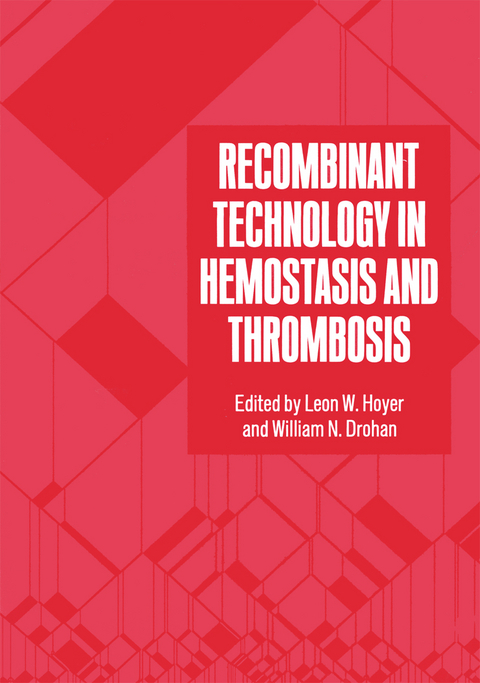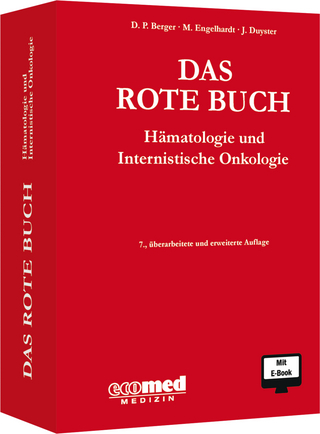
Recombinant Technology in Hemostasis and Thrombosis
Springer-Verlag New York Inc.
978-1-4613-6644-7 (ISBN)
Characterization of Gene and Protein Structure.- Biosynthesis and Assembly of the Factor VIII-von Willebrand Factor Complex.- Factor IX: Gene Structure and Protein Synthesis.- Antithrombin III Genetics, Structure and Function.- Interactions Between the Functional Domains of Antithrombin III.- Protein C: Gene Structure and Protein Synthesis.- Structural and Functional Properties of Protein C.- Molecular Defects Affecting Hemostasis.- Molecular Defects in Hemophilia A.- Molecular Defects in Hemophilia B.- Molecular Defects in Human Antithrombin III Deficiency.- The Biologic Impact of Hereditary Defects that Cause Thrombosis.- Protein Production by Recombinant Technology.- Factors Limiting Expression of Secreted Proteins in Mammalian Cells.- Synthesis of Biologically Active Vitamin K-Dependent Coagulation Factors.- The Expression of Therapeutic Proteins in Transgenic Animals.- Clinical use of Proteins Produced by Recombinant Technology.- The Use of Animal Models to Evaluate Proteins Produced by Recombinant Technology.- Experiences with Recombinant Factor VIIa in Hemophiliacs.- Clinical Trials of Factor VIII Produced by Recombinant Technology.- Clinical Trials of Recombinant Factor VIII.- Concluding Overview.- The Impact of Recombinant Technologies in Understanding Plasma Proteins Important for Hemostasis and Thrombosis.- Contributors.
| Zusatzinfo | VIII, 261 p. |
|---|---|
| Verlagsort | New York, NY |
| Sprache | englisch |
| Maße | 178 x 254 mm |
| Themenwelt | Medizinische Fachgebiete ► Innere Medizin ► Hämatologie |
| Studium ► 2. Studienabschnitt (Klinik) ► Humangenetik | |
| Naturwissenschaften ► Biologie ► Biochemie | |
| Naturwissenschaften ► Biologie ► Botanik | |
| Naturwissenschaften ► Biologie ► Zoologie | |
| ISBN-10 | 1-4613-6644-5 / 1461366445 |
| ISBN-13 | 978-1-4613-6644-7 / 9781461366447 |
| Zustand | Neuware |
| Haben Sie eine Frage zum Produkt? |
aus dem Bereich


